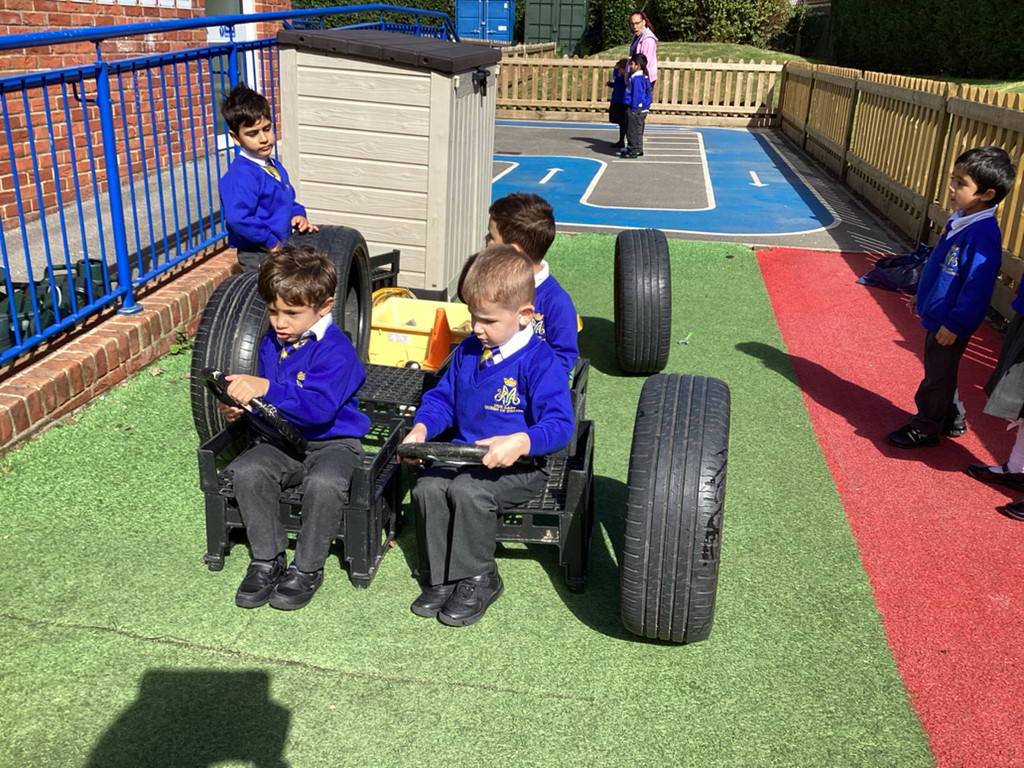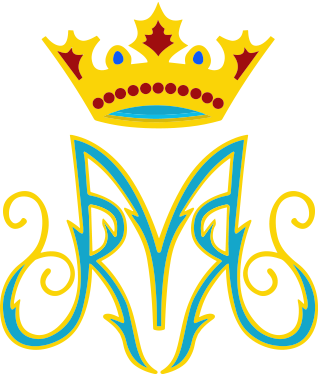EYFS Curriculum
Overview
The Early Years Foundation Stage (EYFS) serves a crucial starting point in a child’s educational journey, laying the groundwork for their future learning. At Our Lady Queen of Heaven we have two Reception classes dedicated to our youngest learners, aged 4 and 5 years old.
Our commitment is to create high-quality learning environments where every child feels supported and valued. Recognising the diverse backgrounds, experiences and starting points of our students, we prioritise getting to know each pupil individually. This approach enables us to create a caring, inclusive and stimulating environment that promotes rapid progress.
We believe in building positive relationships with parents, as this partnership is essential for helping each child achieve. By working collaboratively with families, we strive to ensure that every child has a happy and successful experience in their early years education.
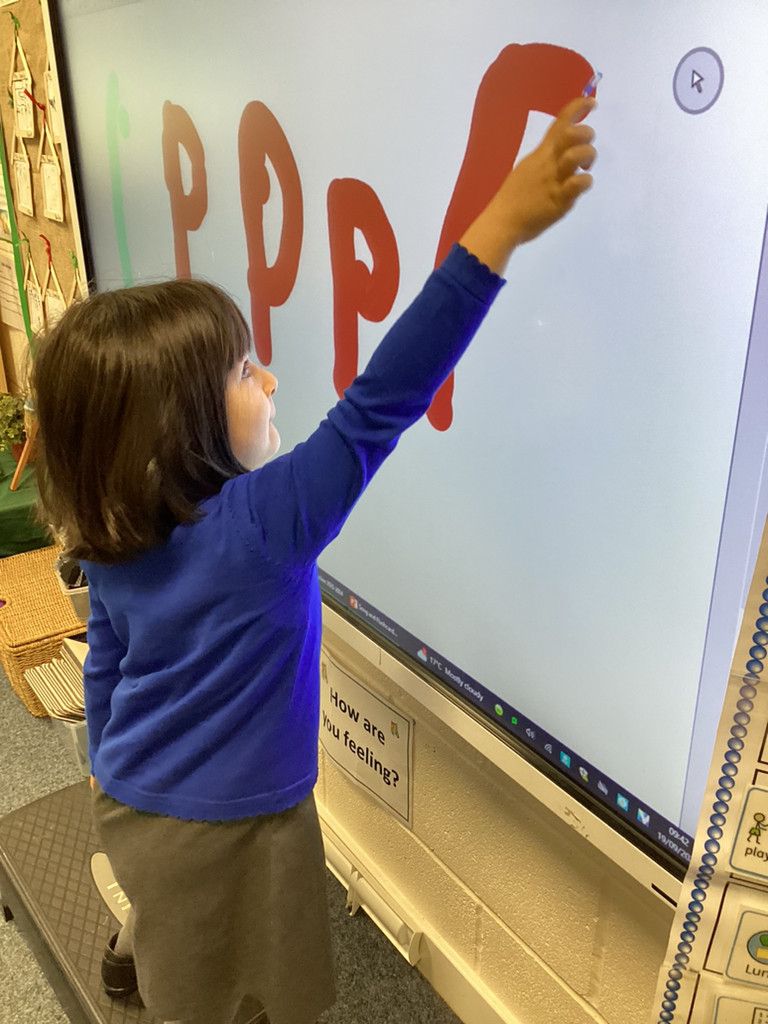
Curriculum
At Our Lady Queen of Heaven we recognise that every child is unique. We understand that children develop in individual ways and at varying rates. We want our children to be independent and self-motivated learners, encouraging the children to adapt their work, think critically and take risks with their learning. The EYFS curriculum is informed by, but not restricted to, the programmes of study as outlined in the EYFS Framework
This document defines what we teach and details the specifics of our setting and school.
The EYFS framework includes seven areas of learning and development, all of which are important and must be used to form the EYFS Curriculum. There are three prime areas, which are seen to underpin all of the basics and support the other more specific areas of the EYFS Framework.
We follow the Early Years Foundation Stage Framework (EYFS, 2021). This is the statutory guidance for children from 0-5 years in a range of settings.
It comprises of 4 themes:
- The Unique Child – every child is a competent learner
- Positive Relationships – children learn to be strong and independent
- Enabling Environments – supporting and extending a child’s development
- Learning and Development –
3 Prime and 4 Specific Areas of learning and development These themes form the basis of learning in the 7 areas.
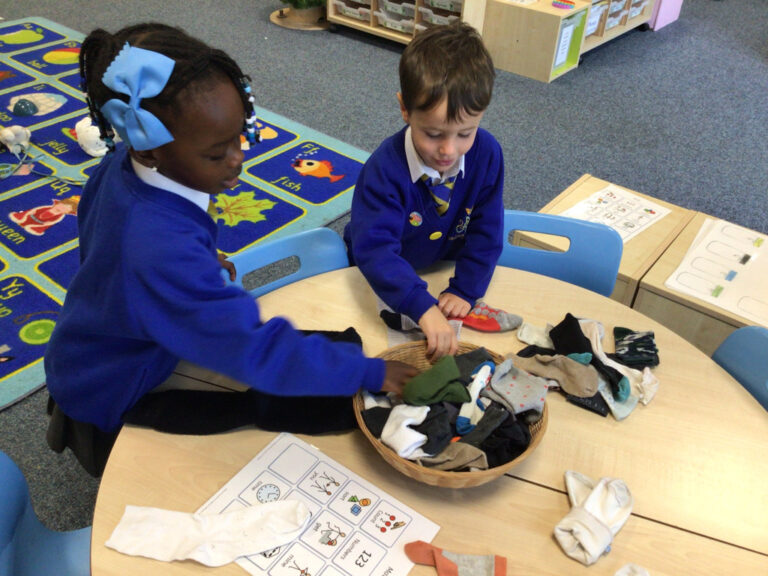
Communication and Language
The development of children’s spoken language underpins all seven areas of learning and development. Children’s back-and-forth interactions from an early age form the foundations for language and cognitive development. The number and quality of the conversations they have with adults and peers throughout the day in a language-rich environment is crucial. By commenting on what children are interested in or doing, and echoing back what they say with new vocabulary added, practitioners will build children’s language effectively. Reading frequently to children, and engaging them actively in stories, non-fiction, rhymes and poems, and then providing them with extensive opportunities to use and embed new words in a range of contexts, will give children the opportunity to thrive. Through conversation, story-telling and role play, where children share their ideas with support and modelling from their teacher, and sensitive questioning that invites them to elaborate, children become comfortable using a rich range of vocabulary and language structures.
On entry to Reception children’s language skills are assessed through observation and the use of Language Screen Assessment. Children who are identifies as having a language need are supported through in class teaching strategies including Word Aware, Aided Language Boards and Makaton. School staff are trained to deliver the Nuffield Early Language Intervention (NELI) and OLQOH works in partnership with professions from the NHS Speech and Language service, along with a private speech and language therapist to provide addition support for children with identified speech and language needs.
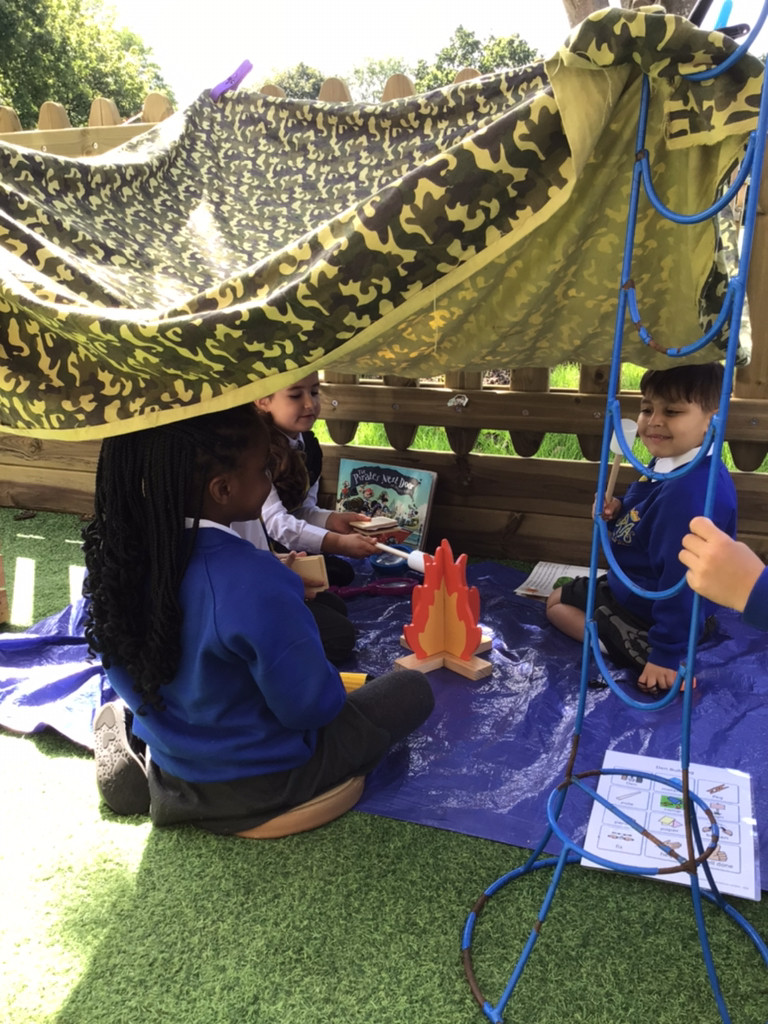
Personal, Social and Emotional Development
Children’s personal, social and emotional development (PSED) is crucial for children to lead healthy and happy lives, and is fundamental to their cognitive development. Underpinning their personal development are the important attachments that shape their social world. Strong, warm and supportive relationships with adults enable children to learn how to understand their own feelings and those of others. Through the use of direct teaching and modelling and the whole school resources of The Zones of Regulation children are supported to manage emotions, develop a positive sense of self and to work well with others. Through day to day activities and planned sessions, the children will learn how to look after their bodies, healthy eating, manage personal needs independently and to keep themselves safe. The use of Ten Ten lessons and resources are used through the school to support these themes. Secure Personal and Social Development is fundamental to provide a secure platform from which children can achieve at school and in later life.
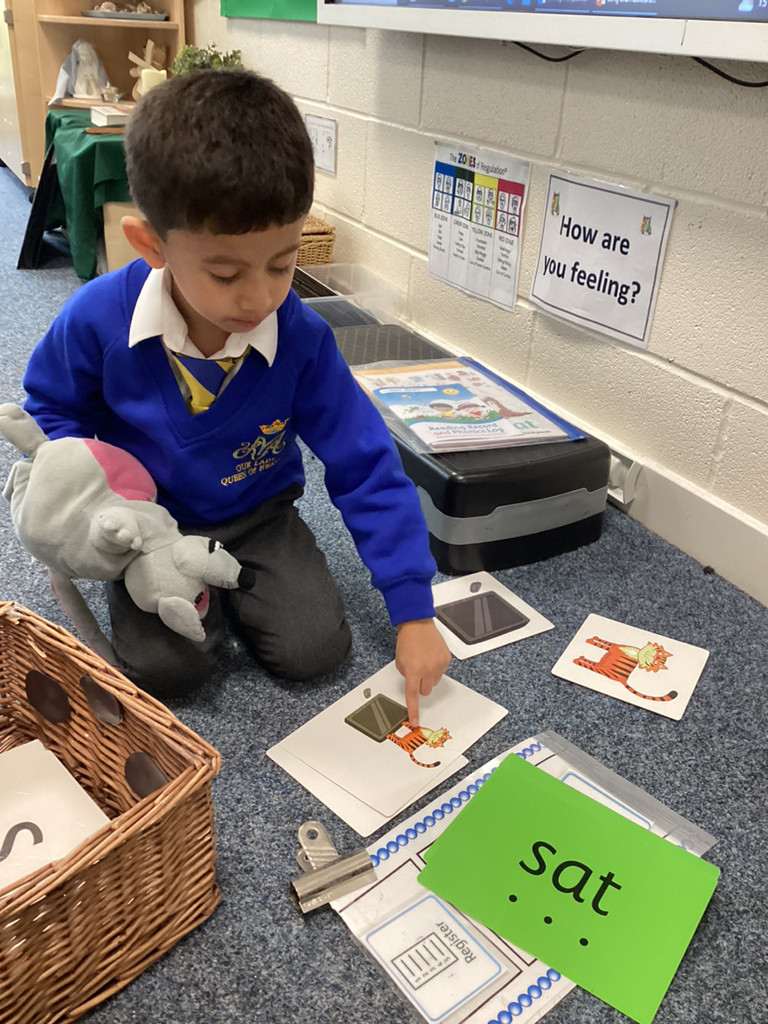
Physical Development
Fine and Gross motor skills are fostered throughout the EYFS environment. Real PE lessons and the use of large scale equipment such as building with planks and crates and playing on the climbing frame and trim-trail, support the children’s gross motor skills. With activities such as playdough, threading, manipulating small world equipment and handwriting tasks supporting the children’s fine motor control.
Additional programmes such as Jump Ahead interventions can be used to support children who need extra support in this area.
Staff promote oral health, hygiene and good health though stories, books, play and adult led activities.
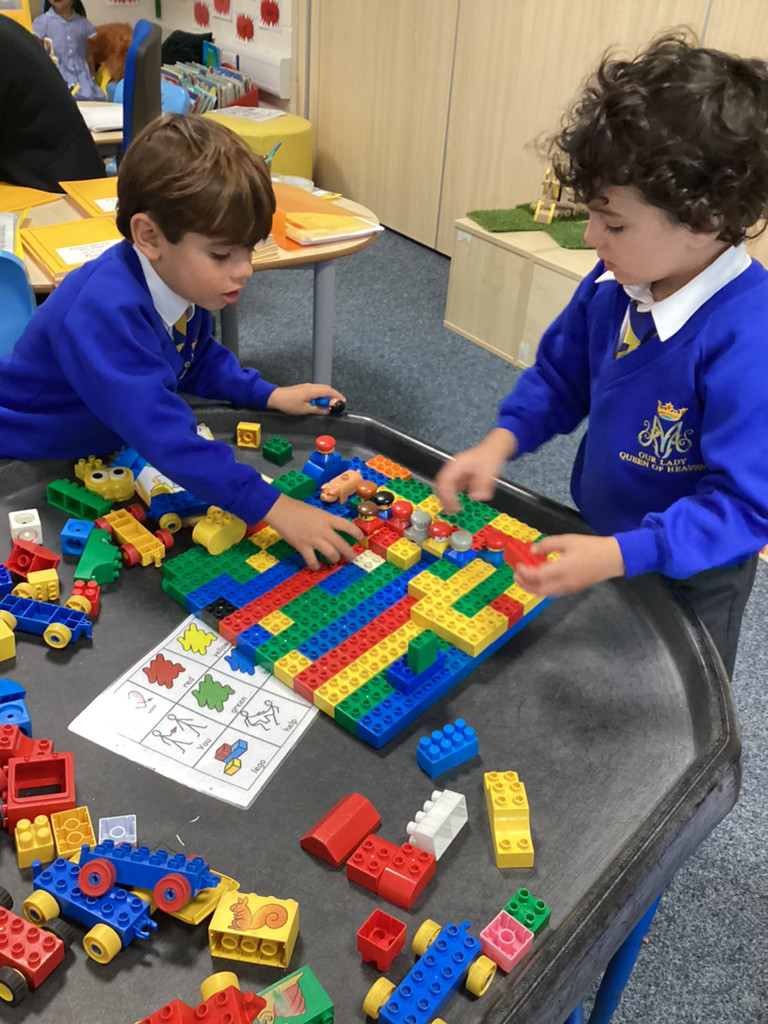
The remaining areas are the Specific Areas. Each area sets out the knowledge, skills, understanding and attitudes which we strive to ensure children will reach by the end of Reception.
Literacy
It is crucial for children to develop a life-long love of reading. Reading consists of two dimensions: language comprehension and word reading. Language comprehension (necessary for both reading and writing) starts from birth. It only develops when adults talk with children about the world around them and the books (stories and non-fiction) they read with them, and enjoy rhymes, poems and songs together. Skilled word reading, taught later, involves both the speedy working out of the pronunciation of unfamiliar printed words (decoding) and the speedy recognition of familiar printed words. Writing involves transcription (spelling and handwriting) and composition (articulating ideas and structuring them in speech, before writing)
The method of teaching reading and writing in the EYFS and then into Key Stage One is based upon the Song of Sounds scheme. Alongside Song of Sounds, Oxford Owl is used to teach letter formation and children’s knowledge of word reading and spelling is supported through the use of Reception High Frequency Words. Reading progression is coordinated by OLQOH’s Literacy lead with reading books carefully matched to the children’s phonic and word reading ability. Parents are invited to Phonic Workshops to see phonic teaching in action and to help them support their child’s learning at home.
Writing is taught through adult led whole class and group activities. With weekly challenges and independent writing opportunities encouraged across the curriculum and EYFS environment. OLQOH’s Pathways to Write Scheme is introduced in Reception. Throughout the year children are also taught to retell some Traditional Tales and the Nativity story which is performed as part of our Nativity play.
A love of stories, rhymes, books and reading is promoted through daily story sessions and school library visits. Staff carefully plan for and use high-quality texts to develop children’s vocabulary, imagination and love of literature. Adults are ambitious in their use of stimulating vocabulary throughout the curriculum and support children to explore the meaning and use of new and interesting vocabulary through the Word Aware Scheme.
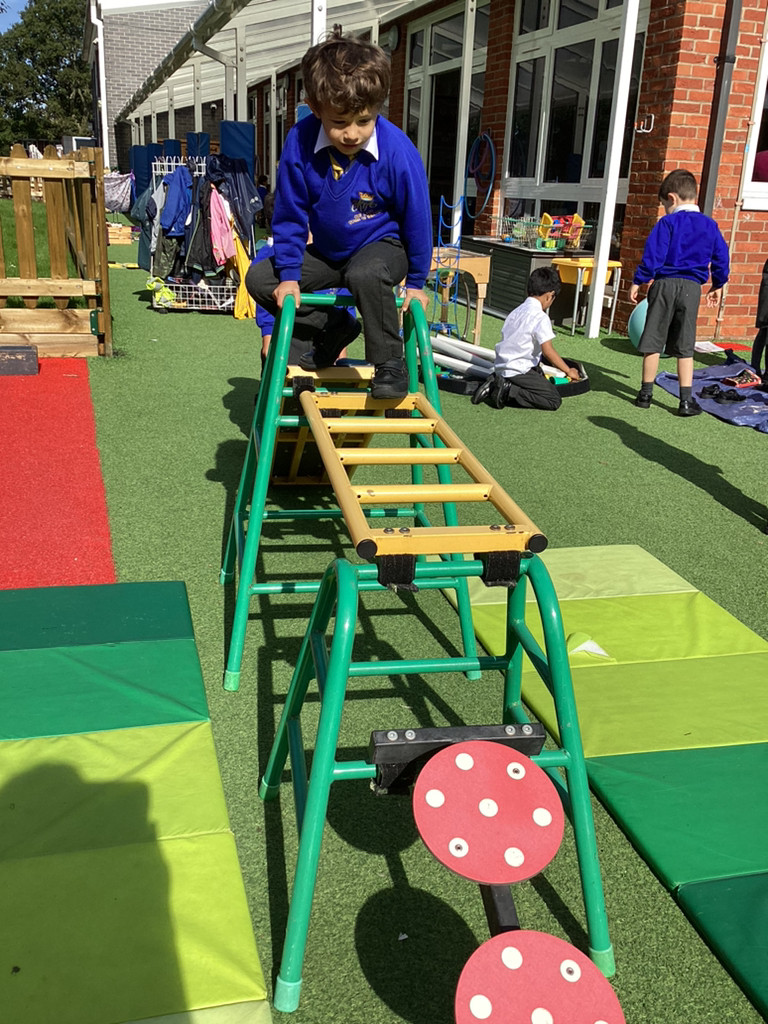
Maths
Developing a strong grounding in number is essential so that all children develop the necessary building blocks to excel mathematically. Children should be able to count confidently, develop a deep understanding of the numbers to 10, the relationships between them and the patterns within those numbers. By providing frequent and varied opportunities to build and apply this understanding – such as using manipulatives, including small pebbles and tens frames for organising counting – children will develop a secure base of knowledge and vocabulary from which mastery of mathematics is built. In addition, it is important that the curriculum includes rich opportunities for children to develop their spatial reasoning skills across all areas of mathematics including shape, space and measures. It is important that children develop positive attitudes and interests in mathematics, look for patterns and relationships, spot connections, ‘have a go’, talk to adults and peers about what they notice and not be afraid to make mistakes.
Maths activities are largely practical based, with children having access to a wide range of resources. Staff promote understanding and use of language relating to counting, shapes, pattern and size in both adult led and child initiated activities. The WhiteRose maths scheme is used to ‘embed a mathematical curriculum that embeds mathematical thinking and talk’. This scheme allows for a clear coverage of skills and is based on mathematical principle research, centred on child development. It has clear phases to support skill progression and it is up to the EYFS teachers to judge when the children are ready to move from phase to phase. This year EYFS are supporting the EEF WhiteRose Jigsaw Trail.
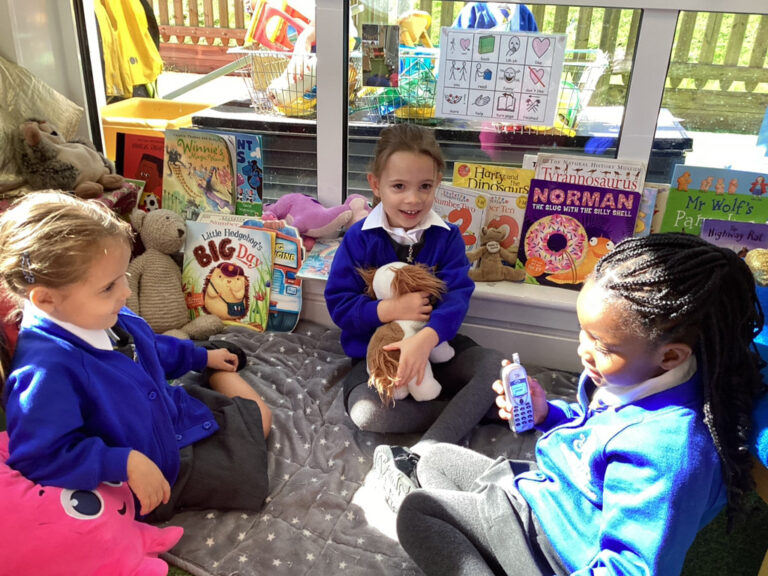
Understanding of the World
Understanding the world involves guiding children to make sense of their physical world and their community. The frequency and range of children’s personal experiences increases their knowledge and sense of the world around them – from school visits, to meeting members of society such as police officers, nurses, firefighters and priests. In addition, listening to a broad selection of stories, non-fiction, rhymes and poems will foster their understanding of our culturally, socially, technologically and ecologically diverse world. As well as building important knowledge, this extends their familiarity with words. Enriching and widening children’s vocabulary will support later reading comprehension.
Children are given the opportunity to discover the world around them by exploring places they are familiar with and comparing these to different environments and habitats. They share their own experiences, traditions and cultures through themed days in school and the class bear who they all have the opportunity to take home for a weekend and to teach him about a country or place that is special to them. The children then share this with their class.
They explore material and textures through creative and other tasks and find out about the way objects work. They observe growth, change and lifecycles by planting fruits and vegetables and observing creatures such as stick insects and butterflies. Opportunities to talk about, read stories and books, welcome visitors and going on trips support the children understanding of the world. This area of learning forms the foundations for later work in science, DT, History and Geography.
Expressive Arts and Design
The development of children’s artistic and cultural awareness supports their imagination and creativity. It is important that children have regular opportunities to engage with the arts, enabling them to explore and play with a wide range of media and materials. The quality and variety of what children see, hear and participate in is crucial for developing their understanding, self-expression, vocabulary and ability to communicate through the arts. The frequency, repetition and depth of their experiences are fundamental to their progress in interpreting and appreciating what they hear, respond to and observe.
This area of learning focusses on the development of the child’s imagination and their ability to communicate and express ideas and feelings in creative ways. It incorporates exploring and using media and materials. Creativity is fundamental to successful learning. In Reception the Charanga music scheme is followed and taught by the class teachers. Special events such as Nursery Rhyme week, Christmas performances, dance workshops and expressive art performances are all planned to enhance the children’s opportunities and experiences.
